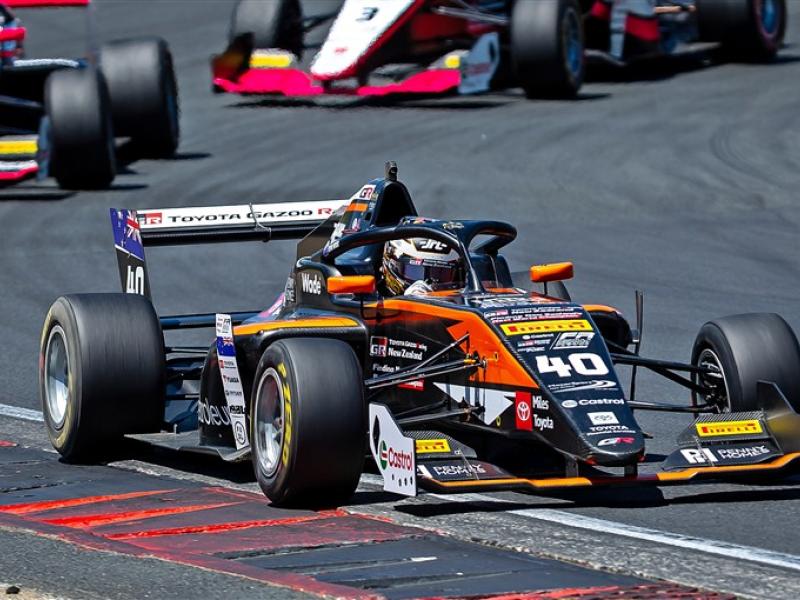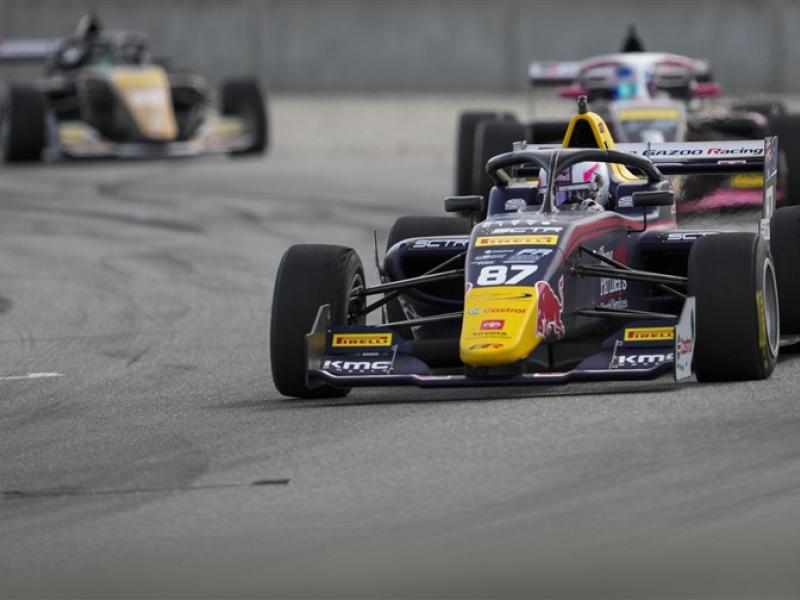|
Robert Barry investigates the current issues on the handling and disposal of refrigerant as well as training in the automotive air conditioning industry. This also leads into an update on radiators and engine coolant technology.
Without a doubt, the current situation in New Zealand regarding the handling of refrigerant is making some people a bit hot under the collar while others accept that change must happen.
Refrigerant fillers and handlers certification scheme background
In March 2009 a working group, which included members of RACCA, (Refrigeration air-conditioning companies assn) IRHACE (Institute of refrigeration air-conditioning engineers of NZ) and the IWG (Importers wholesalers group) was established to review the situation which the industry found itself in with regards to fillers and handlers under the requirements of Hazardous Substances and New Organisms Act (HSNO) as a result of outcomes of the Tamahere cool store fire in April 2008.
According to the MTA it became apparent that the industry had not been meeting its requirements under the HSNO Act, possibly due to the lack of government consultation with the refrigeration sector. This prompted further meetings with ERMA to better understand the law, industry obligations and the best way forward.
The HSNO Act, specifically the Hazardous Substances (Compressed Gases) Regulations 2004, covers the filling of compressed gas cylinders and it affects everyone who fills compressed gas cylinders. A person must not fill a compressed gas container unless that person is an Approved Filler and has a test certificate to this effect, issued by a test certifier.
The HSNO requirements cover all the current refrigerants the industry uses with additional requirements for flammable and ammonia refrigerants, from handling, transportation to filling requirements.
In addition to the HSNO requirements the working group agreed that the proposed scheme would also cover industry obligations under the Ozone Layer Protection Act 1996 (sect 10&11) and incorporate the IRHACE NO LOSS accreditation scheme. This accreditation scheme was set up in 2002, in conjunction with the Ministry for the Environment, to help New Zealand meet its obligations under the Montreal and Kyoto Protocols to reduce emissions of refrigerants into the atmosphere and encourage and education practitioners with the industry’s Code of Practice 2001 and 2007 – the MTA was a supporting party in this initiative.
The working group has developed a proposed “Refrigerant Fillers and Handlers Certification Scheme”, including a national training programme, which will meet the requirements of industry. It is proposed that a national moderator (an existing ERMA approved test certifier) will be contracted to oversee the training of the test certifiers and develop the assessment and auditing processes.
MTA advocacy and training general manager Dougal Morrison say that the MTA is supporting the development of the certification scheme, but points out that future certification is not a govt regulation as such, but rather an endorsement by ERMA that a person is licensed to handle refrigerants.
Points of view from the industry
Because there are no regulations currently governing NZ technicians who work on automotive air conditioning units, professional technicians such as Auckland Auto Air have usually followed the codes of practise issued by VASA (Vehicle Automotive Specialists Australia) or the MTA (Motor Trade Association).
According to Total Air Supply Company manager Ces Moyes the licensing of refrigerant handling which has been proposed to come into effect in 2011 should reintroduce consumers back to reputable service agents and specialist service repairers.
“I’ve been waiting a long time for certification of refrigerant handling to happen, 16 ½ years to be exact,” she says. “So many people have damaged the reputation of the industry and the environment. This is a step in the right direction and I’m glad that the MTA is standing behind it.
“We want to support the best practise in the industry and we will be happy to see standards lifted and maintained by certification, there are great guys doing great work out there that are being undercut and undermined by unethical operators.”
Currently Total Air Supply is charging the voluntary gas destruction levy of $1.50 per kilo of refrigerant as a separate line on the customer’s invoice. This levy is collected on behalf of the Recovery Trust by Price Waterhouse Coopers and is used in the nationwide collection and destruction of unwanted refrigerant. The Recovery Trust is also collecting an additional 50 cent per kilo levy for training purposes.
Ces comments that not all refrigerant suppliers are currently charging for the destruction levy but she says that eventually this practise could be detrimental to the trade.
“People often ask us why we charge the destruction levy when it is a voluntary move by the industry, but if the government was to step in and implement destruction charges by regulation then the fee could be much higher. We have heard the figure of $15.00 per kilo being mentioned.”
Another issue faced by the industry according to Ces is the decreasing availability of the R134a refrigerant which has seen the price per kilo double in the last 12 months. .
With the introduction of the new 1234YF refrigerant in European and US vehicles as well as the new VE Holden Commodore, supplies of R134a will become even tighter as the new refrigerant comes into the marketplace.
But Ces says according to information received thus far workshops and air-conditioning specialists can use their existing equipment for 1234YF although separate gauges are recommended.
“Technicians should be able to recharge a system with 1234YF after a complete evacuation of the old R134a,” she says. “The filter drier unit should be replaced, but the TX valve MUST be replaced when changing from R134a to 1234YF. As more details about 1234YF become available this situation will be clarified.”
Richard Cooper from Auckland Auto Air also supports the move to certify handlers of refrigerants, in his opinion the industry should have pushed for this long ago.
However Richard questions whether there has been wide enough industry consultation by MTA and other parties in regard to the setting up of the process, and whether or not the policing of the process will target miscreant operators effectively.
|
“The issue I see is that the motor industry is changing significantly and a lot more specialist knowledge is required, especially with automotive air conditioning,” says Richard.
“Is certification of refrigerant handling going to make a lot of difference to the cowboy operators, who have little capital value in their business? Who is going to check on these people?
In Richards opinion certification is not going to fix the issue of people doing things incorrectly.
“There is nothing being done that compels people to do things properly by using the correct procedures and equipment. If we in the industry are going to be affected by levies – then shouldn’t everyone be held accountable for their actions?”
The importance of training and correct equipment
Recently Motor Equipment News attended a one day fundamentals of automotive air conditioning course conducted in Auckland by Australian trainer Grant Hand.
Hosted by OEX, with support from Ashdown Ingram, Denso, Sanden, MTA, Total Air Supply, Auckland Auto Air and Christchurch Auto Air – the industry fundamentals course sets the framework for technicians to learn how to properly service an automotive air conditioning unit, while diagnosing common faults along the way.
The aim of the one day fundamentals course is to address strategies that technicians can adopt in their workplace to increase efficiency and reduce the amount of
customer comebacks.
Grant Hand is a brilliantly engaging trainer with decades of experience in automotive air conditioning as well as working out in the field with large agricultural and mining equipment. He takes an active hands-on walk-the-talk approach to teaching which was well received by all the automotive technicians attending that day.
Grant explained to the course attendees the importance of
pressures and temperatures throughout the air conditioning system which gives a double fronted approach to fault diagnosis.
From learning the principles of air-conditioning the course moves
onto responsible industry practises including the all important recovery of refrigerant process.
After digesting some theory, Grant then engaged the attendee’s by de-gassing and re-gassing an air-conditioning system and demonstrated the importance
ensuring that a system is not
under or overcharged and showed how this is done.
The importance of training updates to understand modern automotive air-conditioning is absolutely critical according to Richard Cooper of Auckland Auto Air.
“I’ve been in the industry since the early 1980s and the technology has moved so quickly since then,” he says. “Vehicle manufacturers have greatly reduced the amount of refrigerant used in automotive systems, to the point that it is imperative that the correct charge must be 5 to 10 grams within manufacturer tolerance and in some cases it must be 100 percent correct.
“To do this dealers and workshops must have new equipment which can accurately weigh and measure refrigerant, old equipment cannot do this accurately.
“More importantly those businesses working on hybrid vehicles should have separate equipment for them, as the lubrication system for a Hybrids air conditioning is completely different. Using the wrong oil will cause lead to failure of the electrical windings in a Hybrid system.”
In 2011 the next round of OEX automotive air conditioning industry training seminars will take place in Auckland from July 15th to 18th and in Christchurch from July 22nd to 25th. Places will be limited and it recommended that people book in at their earliest opportunity.
Ecotechnics from AECS
Training and equipment supplier AECS Ltd recently visited the Automechanika in Germany, where it secured a shipment of almost fully automatic Italian air conditioning service equipment at a very competitive price.
The recover-recycle equipment secured for NZ is from the world’s second largest air -conditioning equipment manufacturer, Ecotechnics of Italy. The model is called the ECK 760 and is compatible with the 1234YF refrigerant which is coming online in European vehicles.
According to AECS the new type of refrigerant cannot be mixed with R134a so workshops will required a dedicated R134a and a dedicated R1234yF machine will have to work side by side.
AECS says it has a mobile lab on the road touring the country once every 12 months for service and repair of the equipment it sells. AECS also provides nationwide training to automotive technicians. One of the very popular courses is the Air-conditioning service and repair course.
AECS is a full member of IRHACE, which means that it abide by the ‘no loss’ guidelines. The ‘no loss’ rules dictate that air-conditioning service and repair needs to be performed without loss of refrigerant. AECS not only focus on ‘no loss’ in its seminars but also the Ecotechnics equipment it sells and services is built to the latest SAE J2788 (no loss) standard.
|





